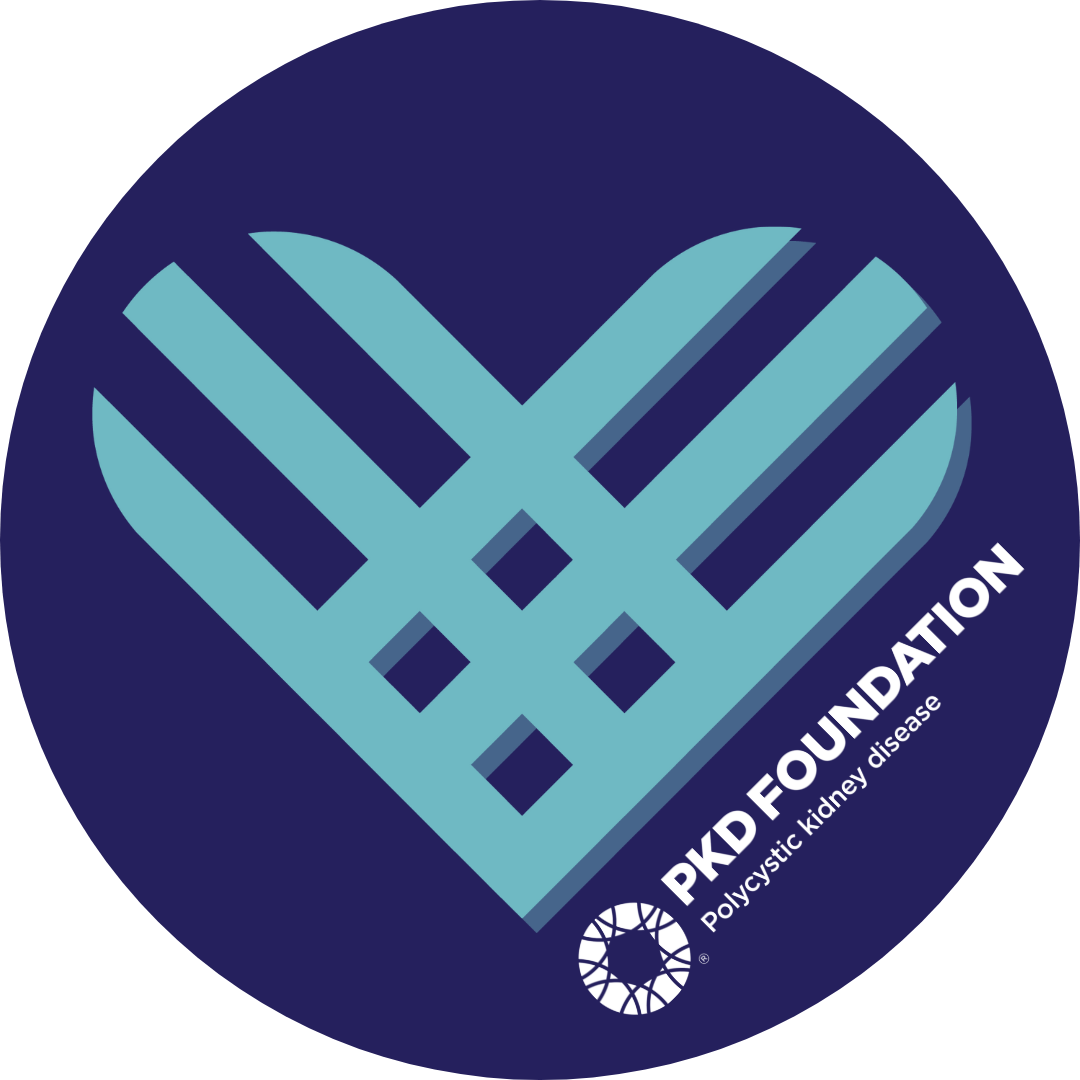Give now through December 3rd
Day(s)
:
Hour(s)
:
Minute(s)
:
Second(s)
Giving Tuesday is a global day of giving back. Today, you can make a difference that will ripple through generations of families affected by PKD.There are an estimated 600,000 people in the U.S. are living with autosomal dominant polycystic kidney disease (ADPKD), and 1 in 25,000 children have autosomal recessive polycystic kidney disease (ARPKD). Every PKD family has a 50% chance of passing this highly genetic disease on to the next generation.
Thanks to the generosity of the PKD Foundation Board of Directors, Giving Tuesday donations will be matched, dollar for dollar, up to $30,000.
This means your gift has twice the power to fund research, improve resources, and offer hope to families living with PKD now and in the future.
PKD Family Stories
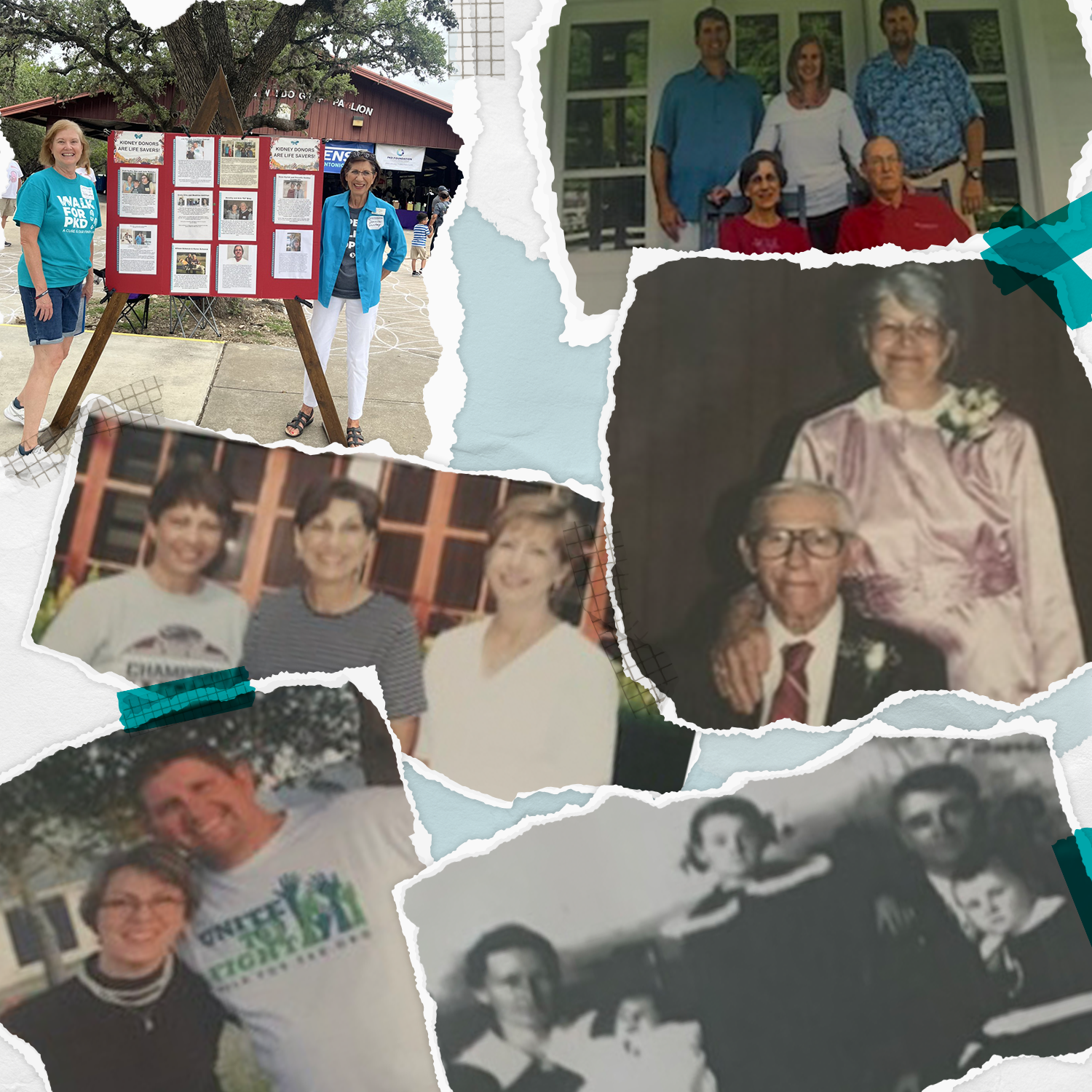
Dorcella Sunday - San Antonio
A connection to polycystic kidney disease (PKD) runs deep in Dorcella Sunday’s family, tracing back to her grandfather. “We know that for sure, and my mom and three uncles had PKD,” Dorcella shared. “Unfortunately, they [my uncles and grandfather] all lost their lives much younger than my mom, who lived to 72.”
Dorcella was the only one among her three siblings diagnosed with PKD. In addition to both of her sons, one of her granddaughters was recently diagnosed. Five generations of her family have felt the effects of PKD.
“We know that the disease is going to continue,” she shared, “…It’s hard when you think of young people having to carry that burden, a disease that has no cure.”
Despite the challenges, Dorcella’s dedication to the PKD Foundation and its mission remains unwavering. She and her husband have been involved with the San Antonio Community and their Walk for PKD since its inception 21 years ago.
“We’ve been there simply because it gives us hope,” she said. “Prior to even having the connection in San Antonio, we felt like we were out there all alone and nobody really knew what to do or how to go forward.”
It was through the PKD Foundation that they were able to find a community and meet other families with similar stories.
Her advice to those experiencing the same journey with PKD is simple: “Do your part, get out there, and spread the word.”
Dorcella’s commitment to raising awareness and supporting the PKD Foundation is an inspiration. Her story is a testament to the power of community and the importance of never giving up hope.
Give today at http://go.pkdcure.org/GT24S
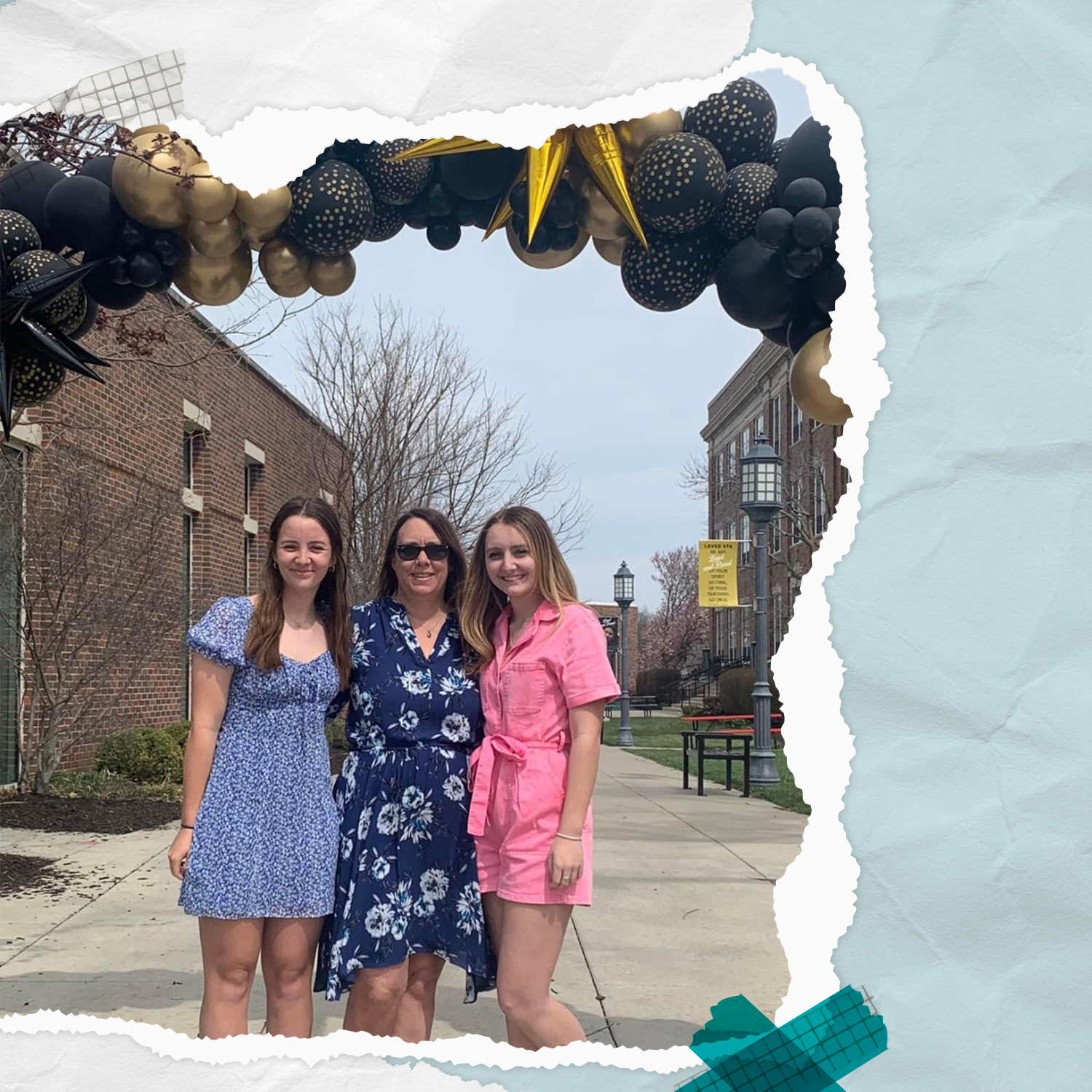
Gabriella Sage - Kansas City
High school senior Gabriella Sage first learned about polycystic kidney disease (PKD) when her mother was diagnosed a few years ago. “I honestly had no prior knowledge of the disease,” Gabriella said. She later discovered that PKD runs in her family, passed down from her grandmother to her mother and now to her sister.
Last summer, Gabriella took action and joined the University of Kansas Medical Center’s PKD Summer Research Program. “I just wanted to learn more about the research behind it and how it works.”
During her internship, Gabriella worked closely with Jason Stubbs, M.D., Kyle Jansson, M.D., Ph.D., and research assistant, Shiqin Zhang. She found the complexity of PKD research eye-opening, noting, “It’s not one-size-fits-all, it’s different for everyone. That kind of put it into perspective how difficult it is to find a cure.”
Despite hurdles, Gabriella was encouraged by the tenacity of researchers working to find potential treatments and a cure.
“Seeing the dedication of researchers and their working together… that really motivated me,” Gabriella said. “I was just really inspired to get involved.”
Gabriella was heavily motivated by her mother’s resilience. “It’s hard. Knowing she struggles with this, and other people don’t know.” Her family works together to support and advocate for one another. She’s also seen this strength reflected within the PKD community. “There’s so many groups and individuals coming together and supporting each other.”
Her message to others in similar situations is, “stay hopeful and be resilient, your illness doesn’t define you.”
Gabriella is grateful for her experience at KU Med and hopes to continue her involvement in the PKD community. She encourages others to support the PKD Foundation. “It connects so many people…and helps further research.”
Gabriella’s determination to turn her family’s challenges into a force for change embodies the resilience that drives the PKD Foundation’s mission.
Give today at http://go.pkdcure.org/GT24S
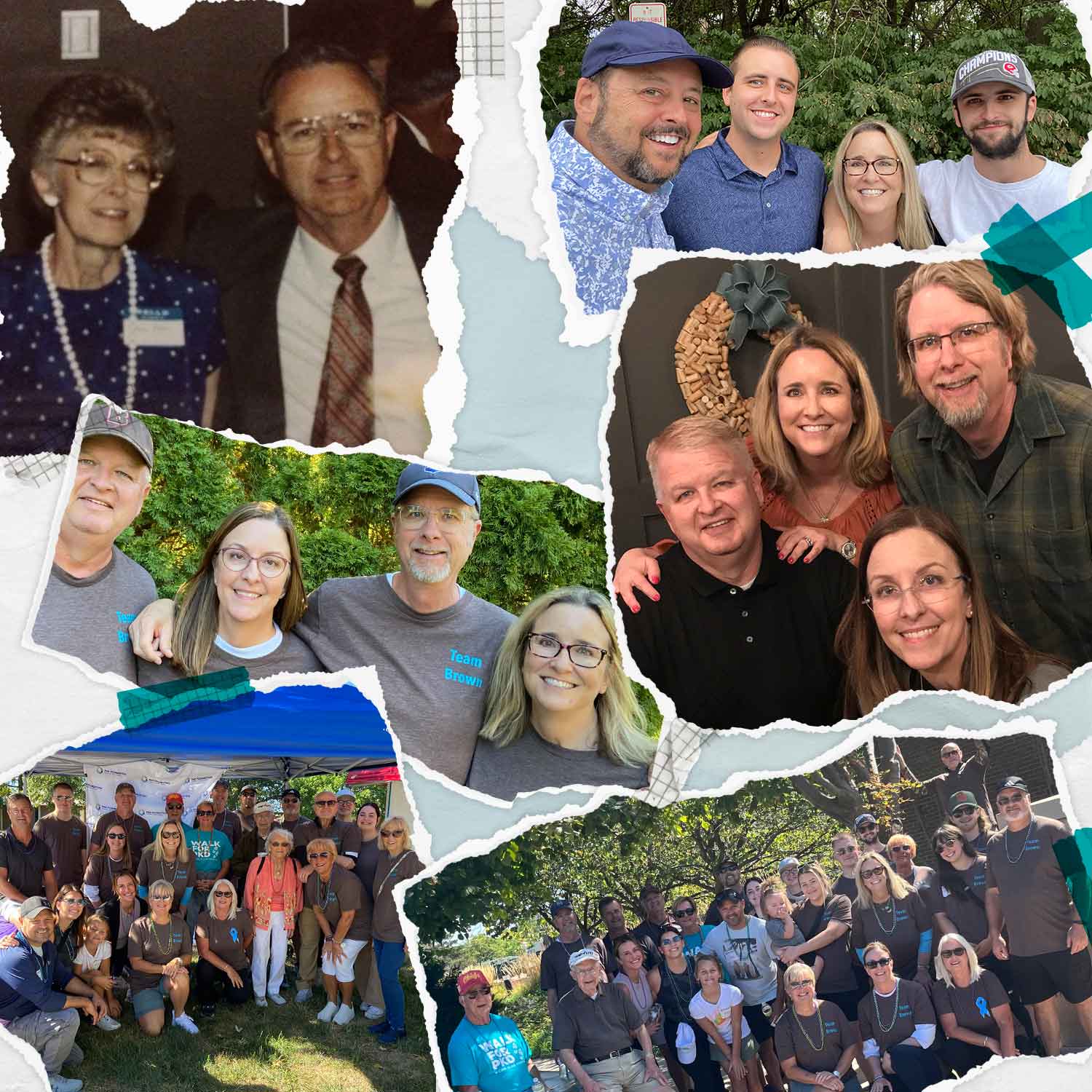
Anne Bartels - Kansas City
For Anne Bartels, polycystic kidney disease (PKD) is more than a diagnosis—it’s a legacy that’s been passed down through four generations. Her grandmother was diagnosed at 65, spending many years on dialysis. Anne’s mother faced severe complications from multiple surgeries and an infection. Her sister underwent a liver and kidney transplant. When it finally came time for Anne to have a transplant, she was anxious.
“I see where my mom went, and I see where my sister went… but the medical technology in the 25 years is completely different from my mom to my sister to my transplant.”
With support and motivation from their dedicated nephrologist, Anne’s family learned to participate actively in their care. “He was the doctor for my grandma, my mom, myself, and my brother… I feel like he’s part of our family.”
Over the years, Anne’s family has leaned on each other, acting as both cheerleaders and caregivers. Her brother, the only sibling not to inherit PKD, became a living donor for their sister. And when Anne’s other brother (who did inherit the disease) needed a kidney, they all came together, creating a Facebook page to help find him a living donor. “We don’t suffer alone in my family.”
Anne’s hope for the next generation rests on advancements in medical technology and the ongoing efforts of the PKD Foundation. “I’m very hopeful that my son won’t have to deal with the complications that we’ve had to deal with.”
Her advice to other families experiencing similar challenges? Educate yourself as much as you can, find a nephrologist who’s going to help you through the process, and get involved with the PKD Foundation.
“We’re going to do whatever we can to help the PKD Foundation find a cure for future generations.”
For Anne and her family, the fight against PKD continues as they work to ensure a brighter, healthier future for all those affected.
Give today at http://go.pkdcure.org/GT24S
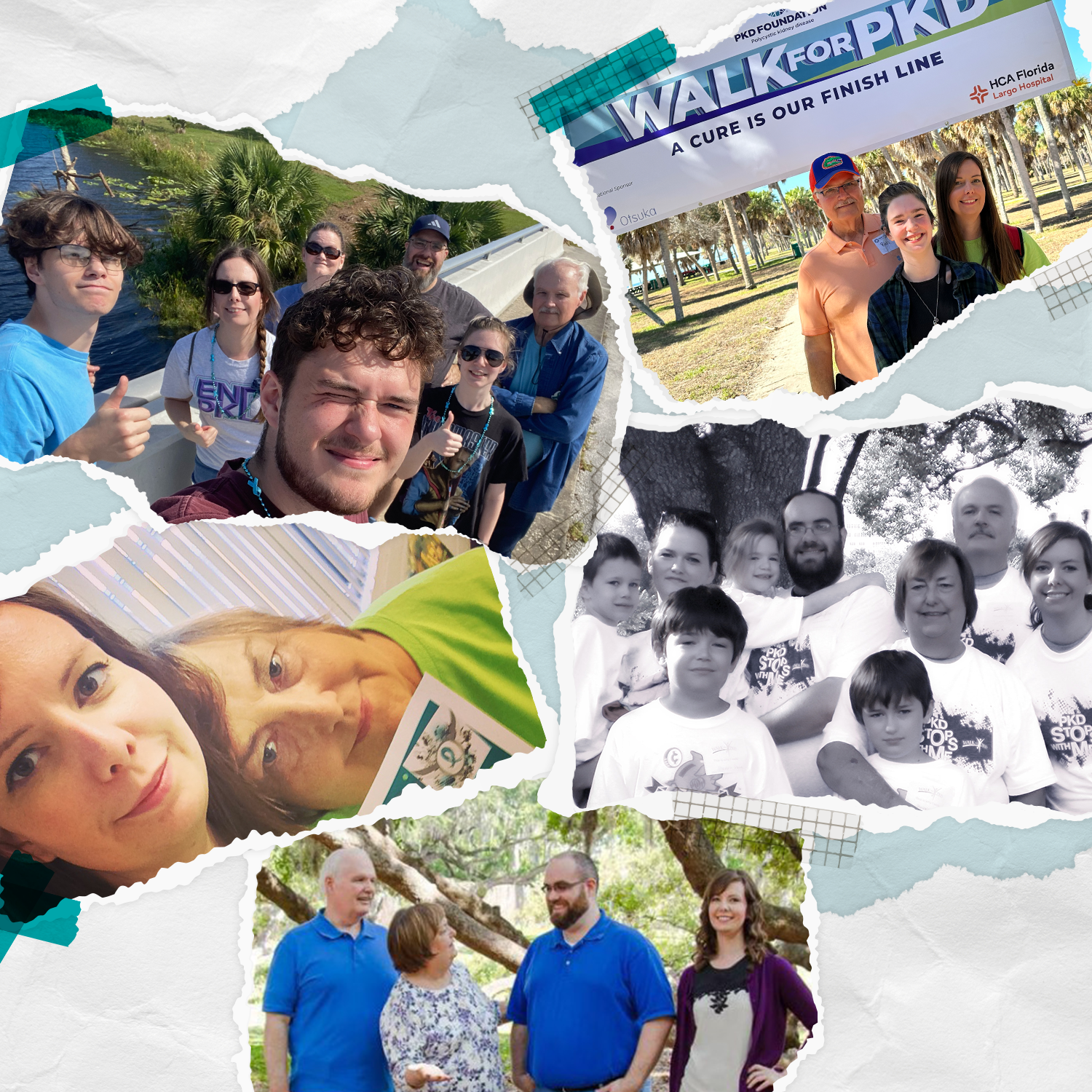
Elisabeth Davis - Tampa
For 25 years, PKD has been a constant in Elisabeth Davis’s family. It took the vitality of loved ones and even caused some to pass away early in life, like her grandfather.
Elisabeth’s mom was diagnosed in her 40s—around the same age her father was when he passed away, never having met his granddaughter. “She declined quite quickly and from diagnosis to dialysis, it was only five or six years,” Elisabeth said. She watched her mom’s strength and energy fade as she battled PKD, transforming her from an active woman to needing frequent rest and care.
Elisabeth and her brother supported their mother through the challenges of PKD, especially during her dialysis and treatment.
“Taking her to appointments, caring for her in the hospital, and talking with her about her struggles. I can’t tell you the countless conversations I had with her about the frustration of living with a hidden disease that people did not understand.” Through it all, their mom educated Elisabeth and her brother about PKD, encouraging them to support one another and be proactive about their health.
“Watching your parent lose their freedom, health, and life—knowing that could be your fate one day—makes you band together.”
Knowing the details of their family’s history of PKD gives them hope for future generations. It allows Elisabeth and her family to make informed decisions about their health, including taking advantage of early diagnosis and new treatments.
“Learn from each other, support each other, and share information,” she encouraged. “We cannot know for sure, but had my mom known earlier in life that she had a family history, she may have made different choices.”
Since 2007, Elisabeth has found the PKD Foundation to be a valuable resource for information and support when she needs it most. Alongside her family, she fundraises on behalf of the Foundation so that future generations won’t have to face their same struggles.
“We started supporting the PKD Foundation so that PKD would stop with us.”
Give today at http://go.pkdcure.org/GT24S
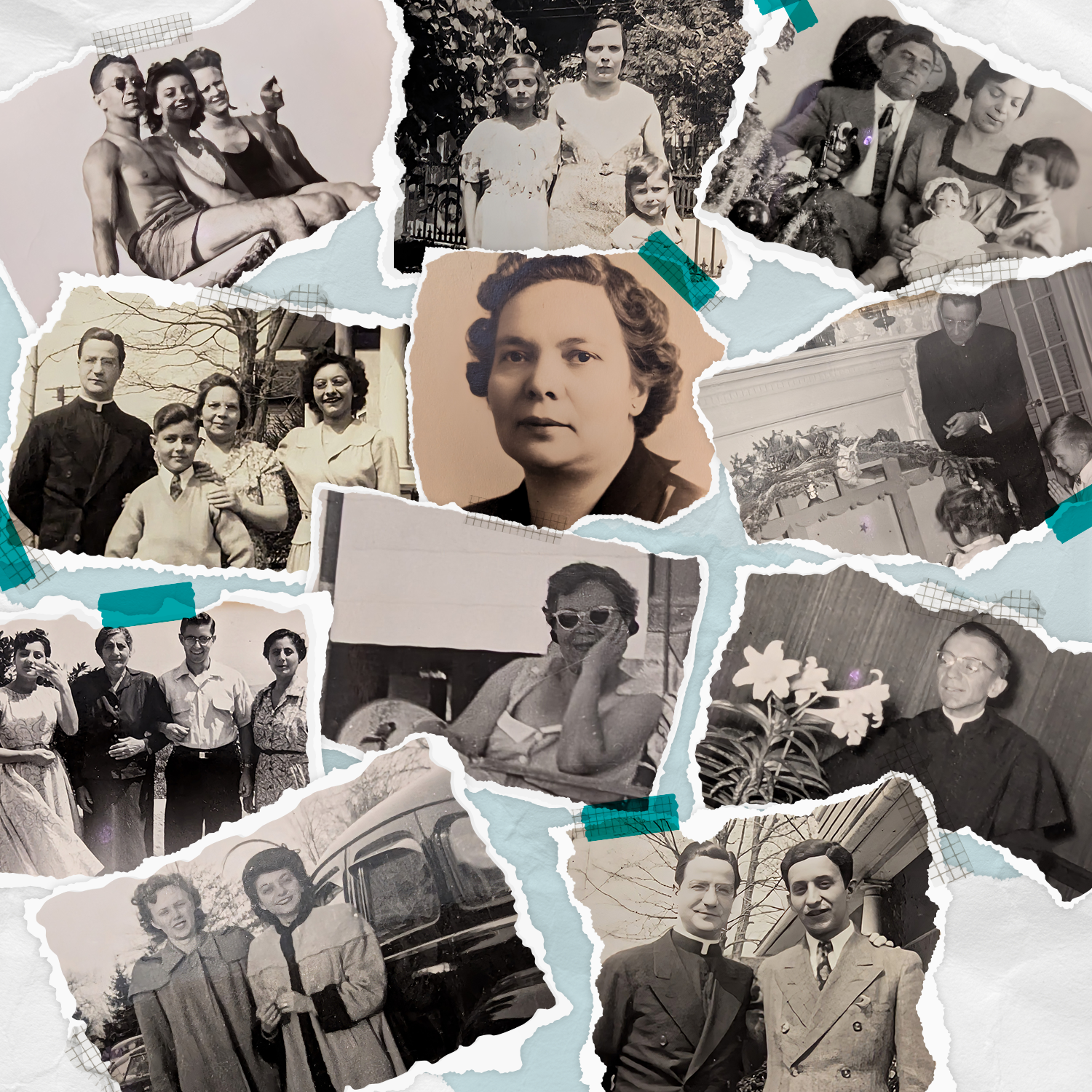
Katharine Krozel - Boston
PKD is one of the most common genetic diseases and many people may not realize just how deeply it affects a single family.
Multiple generations of Katharine Krozel’s family know what it’s like to battle PKD. Starting with her grandmother, Rosalia, four of her six children inherited PKD. Those children went on to have 11 grandchildren, five of whom, including Katharine, have PKD. Now, it’s reached yet another generation.
In total, 13 family members across four generations have been diagnosed with PKD, many dealing with the challenges of this disease at the same time.
Katharine and her family are determined to ensure future generations won’t face the same hardships. That’s why their Walk for PKD team, A Lotta Mazzottas, has been fundraising for the PKD Foundation for 22 years.
“PKD has impacted my daily life for 30 years—fatigue, dehydration, infections, hospital stays, and getting fluids and tubes put in my body,” Katharine shared. “The future members of my family deserve better. They deserve a life free from the constant worry about dialysis, transplants, and how to manage PKD symptoms.”
Katharine’s family hopes new treatments, and ultimately a cure, is on the horizon for future generations.
“When my grandmother had PKD, research was almost non-existent. We’ve come a long way, but we still have far to go. Your donation will help us get there faster.”
Give today at http://go.pkdcure.org/GT24S
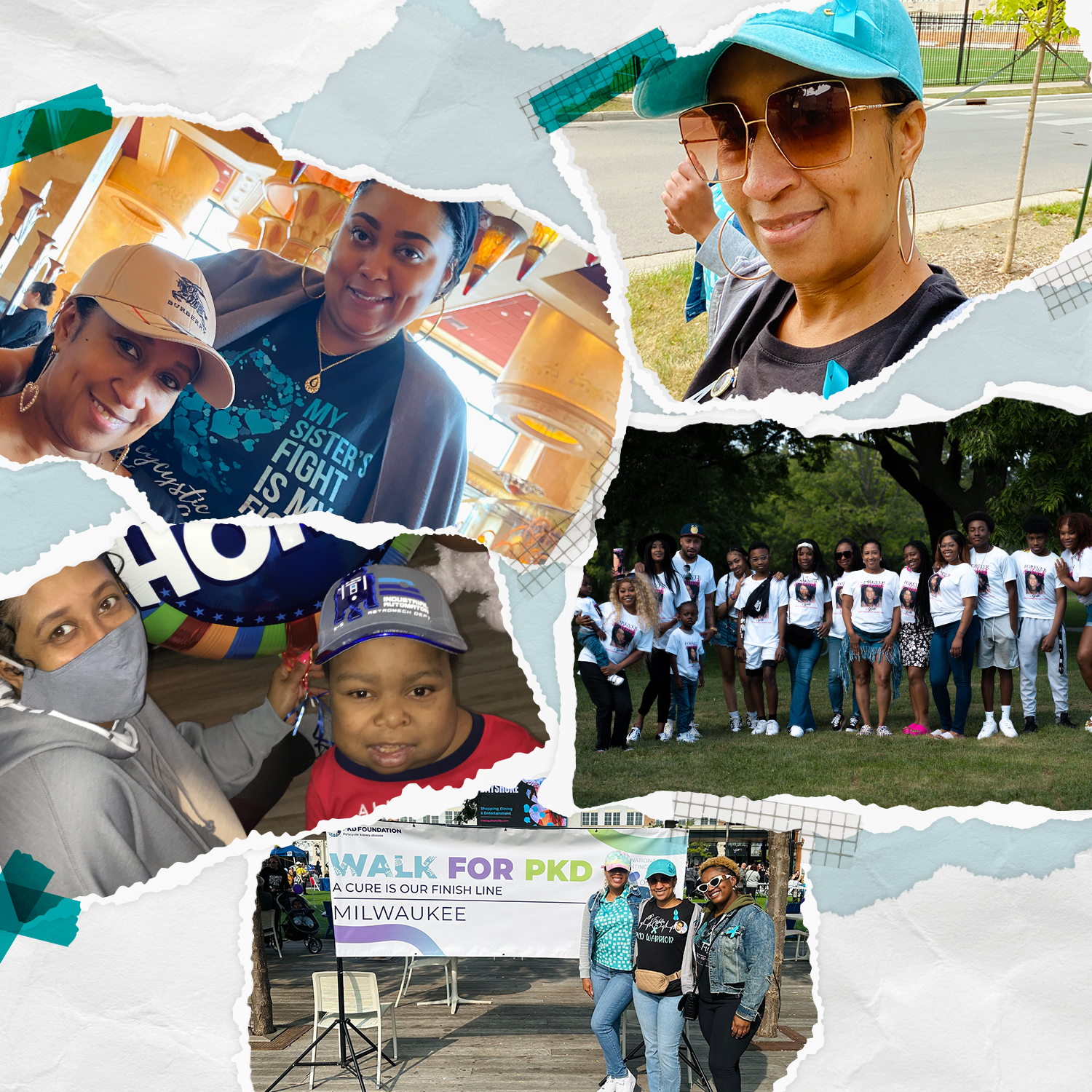
Tiwana “Tia” Ward - Whitefish Bay
At the age of 18, Tiwana “Tia: Ward was diagnosed with ADPKD. She was the third generation in her family to inherit the disease.
“My generation is the first in my family to begin to educate ourselves, advocate, and build awareness. My mother, and most of her half-siblings, inherited the disease from her father,” said Tia.
Over time, her mother’s health began to fail, and dialysis was needed. “She always wanted me to learn more and do more for myself and others with PKD, saying, ‘It had to start somewhere,’ and I have always remembered that.”
With the birth of Tia’s nephew, Kortez, her family entered its fourth generation with PKD. He was born with autosomal recessive polycystic kidney disease (ARPKD) and received a bilateral nephrectomy at just four months old.
Tia is passionate about spreading awareness of PKD. She even created a magnet that she passes out to people, helping others learn about the disease and how many people are impacted by it.
“It’s sad and heartbreaking that PKD, for so many years, has not been treated and acknowledged as a very real disability…It’s a disease deserving of recognition and the world should it know by name.”
Beyond spreading awareness, Tia lives by her “3 Fs:” fund, find, fight.
“The PKD Foundation is just that to us—our foundation. It gives us the encouragement to keep fighting because we know that they are fighting with us. I’d describe the PKD Foundation as the backbone to our survival: the information shared, opportunities provided, encouragement given, education bestowed, funding raised for research, and so much more.”
Give today at http://go.pkdcure.org/GT24S
Your 2024 Giving Tuesday Toolkit
Sample Social Media Posts
- Today is Giving Tuesday! Help raise $190,000 for the PKD Foundation and accelerate a cure for polycystic kidney disease. Your donation today will be matched by two generous donors, doubling its impact. Get in on the excitement and give today. [http://go.pkdcure.org/GT24S]
- In the U.S., an estimated 600,000 people are living with polycystic kidney disease. I’m one of them. Join my fight to #endPKD this Giving Tuesday! Donate now to the PKD Foundation and have your gift matched. [http://go.pkdcure.org/GT24S]
- I’m supporting the PKD Foundation on Giving Tuesday. They’re the only organization in the U.S. dedicated to finding treatments and a cure for polycystic kidney disease (PKD), which causes the uncontrolled growth of fluid-filled cysts in the kidneys. I’m thrilled that my donation this year is being matched by the PKD Foundation’s Board of Directors, up to $30,000. Help me make a difference for everyone affected by this disease and give today! [http://go.pkdcure.org/GT24S]
- Help me meet my Giving Tuesday goal! When you donate to the PKD Foundation, you’re supporting future generations of PKD patients and their families. Together, we can make a lasting impact on everyone affected by polycystic kidney disease. Give today and have your donation matched up to $30,000. [http://go.pkdcure.org/GT24S]
- Every PKD family faces a 50% chance of passing this genetic disease to the next generation. This Giving Tuesday, we’re raising funds to accelerate the path toward ending PKD. Give today at [http://go.pkdcure.org/GT24S]
- Support the PKD Foundation this Giving Tuesday and help #endPKD. This year, the PKD Foundation Board of Directors will be matching donations, dollar for dollar, up to $30,000. Your donation goes directly to supporting vital research and patient care. Give today at [http://go.pkdcure.org/GT24S]
Sample Emails to Send to Your Friends and Loved Ones
If You have PKD
Dear [Friend’s/Recipient’s Name],
I’m reaching out this Giving Tuesday to ask for your support of a cause and organization that’s near and dear to me, the PKD Foundation. As you might know, PKD personally impacts my life.
[INSERT BREIF PERSONAL PKD STORY]
I’m one of an estimated 600,000 Americans living with PKD, and the PKD Foundation is the only organization in the U.S. solely dedicated to finding treatments and a cure. Because of their commitment to improving the lives of the PKD community, the PKD Foundation Board of Directors will be matching donations, dollar for dollar, up to $30,000.
Your donation will go twice as far in driving progress toward a cure for people like me.
The PKD Foundation believes fueling PKD research to accelerate treatments and a cure is essential. Through your support, you’ll be saying that you believe it, too.
With Gratitude,
[Insert your name]
On Behalf of a Loved One with PKD
Dear [Friend’s/Recipient’s Name],
I’m reaching out this Giving Tuesday to ask for your support of a cause and organization that’s near and dear to me, the PKD Foundation. As you might know, PKD impacts my family.
[INSERT BRIEF PERSONAL PKD CONNECTION]
An estimated 600,000 Americans are living with PKD—the PKD Foundation is the only organization in the U.S. solely dedicated to finding treatments and a cure. Because of their commitment to improving the lives of the PKD community, the PKD Foundation Board of Directors will be matching donations, dollar for dollar, up to $30,000.
Your donation today isn’t just about this moment—it’s about the changing lives of families like mine for years to come. Join me in supporting the PKD Foundation to help everyone impacted by this disease.
With Gratitude,
[Insert your name]
PKD Volunteer
I’m reaching out this Giving Tuesday to ask for your support of a cause and organization that’s near and dear to me, the PKD Foundation.
As you might know, I’ve been a volunteer with the Foundation for [INSERT NUMBER OF YEARS]. Being a volunteer at the PKD Foundation, I’ve seen the significant impact it’s made on those living with PKD and their loved ones.
The PKD Foundation is the only organization in the U.S. solely dedicated to finding treatments and a cure for PKD. Because of their commitment to improving the lives of the PKD community, the PKD Foundation Board of Directors will be matching donations, dollar for dollar, up to $30,000.
An estimated 600,000 people are living with PKD in U.S., and they have a 50% chance of passing this highly genetic disease on to the next generation. Your gift can help accelerate the path to ending PKD, changing lives for years to come.
With Gratitude,
[Insert your name]
Social Share Assets
About the PKD Foundation
We’re the only organization in the U.S. solely dedicated to finding treatments and a cure for polycystic kidney disease (PKD) and to improving the lives of those it affects. Since 1982, we’ve proudly funded more than 1,300 research projects and leveraged $1.5B in research funds, while serving our local communities across the country. We’re inspired by our mission. And driven by our vision.
Our mission
WE GIVE HOPE. We fund research, advocate for patients, and build a community for all impacted by polycystic kidney disease.
Our vision
End PKD
Page last updated October 2023


